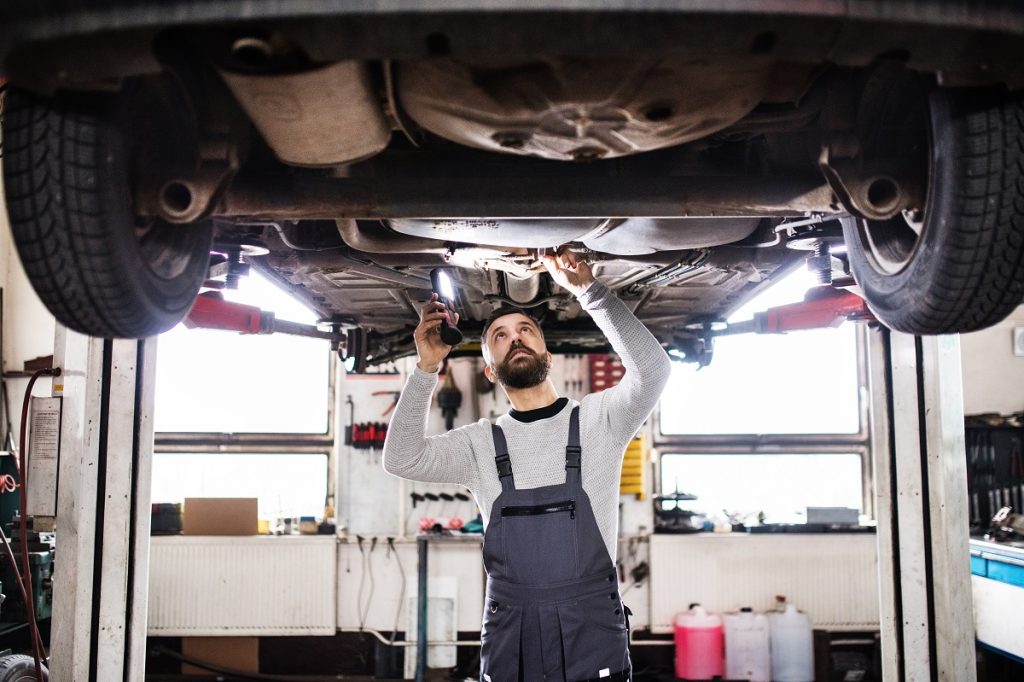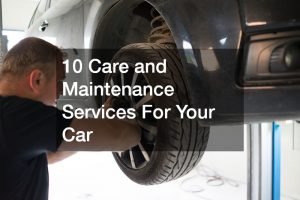- Regular car check-ups can save money by detecting and fixing minor issues early on, preventing costly repairs.
- By prioritizing routine maintenance, you can ensure your car stays safe and reliable, preventing potential breakdowns and malfunctions.
- Proper car maintenance can help maintain the resale value of your vehicle, particularly luxury brands like BMW and Mercedes-Benz.
- Checking fluid levels, changing oil, and regular tire and brake maintenance are essential for increasing your car’s lifespan and performance.
- Experts recommend taking your car in for a check-up every six months or 7,500 miles, whichever comes first.
Your car is a significant investment, and regular maintenance is crucial to protect it. Taking good care of your vehicle extends its lifespan and ensures that it runs efficiently and effectively. Regular check-ups and maintenance prevent small issues from becoming significant problems, saving you thousands of dollars in repair costs in the long run.
Regular car maintenance is essential to ensure the longevity and safety of your vehicle. It not only saves you money in the long run but also helps to prevent accidents and breakdowns.
Furthermore, regular maintenance is essential for your and your passengers’ safety. A well-maintained car ensures that all parts are in good working order, minimizing the risk of accidents or breakdowns on the road. This article will provide you with essential maintenance tips to help you keep your car in tip-top shape.
Benefits of Car Check-up
Keep your Car Safe
Just as you wouldn’t ignore a health check-up, your car needs regular check-ups to stay safe on the road. A mechanic can check your steering, brakes, and suspension to ensure they are in good working order. They can also replace worn or damaged parts before they become a safety hazard.
Taking your car in for routine maintenance, a mechanic can thoroughly inspect the steering, brakes, suspension, and other essential systems to ensure they are in good working condition. This includes checking for worn or damaged parts that could cause a safety hazard on the road.
Additionally, regular maintenance can also help prevent unexpected breakdowns and malfunctions. Keeping your car safe and reliable is crucial, especially if you frequently travel long distances or have a daily commute.
Save you Money
A minor issue can quickly become a significant and expensive problem if not addressed early on. By taking your car in for regular check-ups, a mechanic can detect and fix small issues before they get out of hand. This can save you hundreds, if not thousands, of dollars in repair costs.
Regular car maintenance helps prevent major problems and keeps your car running efficiently. This means you will get better gas mileage, and your vehicle will last longer. In addition, some car manufacturers offer only valid warranties if you can provide proof of regular maintenance.
By keeping up with regular check-ups and maintenance, you can avoid voiding your warranty and potentially paying for expensive repairs out of pocket.
Maintain the Resale Value
If you plan to sell your car, taking good care of it and keeping up with regular check-ups ensure you get a higher price. This is particularly important for luxury brands like Mercedez-Benz, and BMW as well as affordable brands like Honda and Toyota.
For example, if you own a BMW, keeping up with regular maintenance and BMW auto repair can help increase its resale value. A car that has been well-maintained and has a service history is more likely to attract potential buyers and command a higher price than a car that has been neglected.
It’s not just luxury car brands that benefit from regular maintenance either. Even more affordable brands like Honda or Toyota can benefit from proper care and maintenance.
Recommended Frequency of Check-ups
Experts recommend taking your car in for a check-up every six months or every 7,500 miles, whichever comes first. If you drive in harsh or extreme conditions, you may need to take your car in for more frequent check-ups.

Essential Maintenance Tips
There are several essential maintenance tips to keep your car running smoothly. These things can add up and significantly improve your car’s life and performance. Here are some tips to keep tips to increase your car’s lifespan.
Checking Fluid Levels and Changing Oil
The engine oil is to the car engine what blood is to the human body. Hence, ensuring the oil level is optimal, and the oil is clean is vital. Over time, oil breaks down and loses effectiveness, leading to friction and wear on the engine.
Thus, changing the oil every 5,000 to 7,500 miles is recommended, depending on the manufacturer’s guidelines. In addition to oil, you should regularly check the transmission fluid, power steering fluid, brake fluid, and engine coolant levels to ensure they are at the correct levels.
Tire Maintenance
Tires are the only parts of your car in constant contact with the road, making them crucial to vehicle safety. Regularly inspecting your tires is essential to ensure they wear evenly and have plenty of tread depth. Rotate your tires every 5,000 to 7,500 miles, which will help them wear more evenly and extend their lifespan.
Remember to maintain the recommended tire pressure, as underinflated or overinflated tires can lead to poor handling, uneven wear, and even blowouts.
Brake Maintenance
Brakes are another crucial safety component of your car, and regular checks are a must to ensure they function efficiently. Check the brake pads, rotors, and calipers for signs of wear at least once a year or whenever you hear unusual noise or feel vibrations while applying the brakes.
Keep in mind that driving habits can affect the frequency of brake checks. If you frequently drive in stop-and-go traffic, you may need more tire changes than someone who operates on the open road.

Regular car maintenance is essential for your safety and vehicle longevity. By taking your car in for regular check-ups, a mechanic can detect minor issues before they become major ones and save you money on costly repairs.
Moreover, keeping up with routine maintenance will help maintain or increase its resale value if you plan to sell it in the future. To ensure that all systems run smoothly, experts recommend getting a full inspection every six months or 7,500 miles (whichever comes first).
Remember to regularly check fluid levels and tire pressure and rotate tires to keep them wearing evenly! With these tips, you can rev up your car’s lifespan while staying safe on the road.







